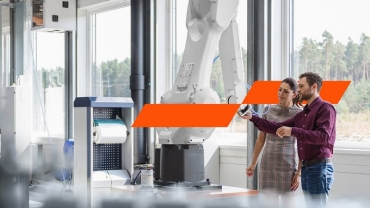
After slow-down tech M&A market expected to recover
State of the Tech M&A Market in the Netherlands and Belgium
In 2019, an average of one technology deal was closed every 2.5 days in Belgium and the Netherlands together. And although the Covid-19 pandemic currently slowed down activity in the tech M&A segment, the dynamic technology landscape will likely ensure that technology-related deals will continue to drive the M&A market. In PwC’s recent in-depth study State of the Tech M&A Market in the Netherlands and Belgium, PwC analyses tech M&A trends in the past five years, discusses the present situation, and provides an outlook for the period after 2020.
High-quality broadband infrastructure, high cloud penetration, availability of human capital with critical digital skills, R&D activity in technology and a favourable regulatory landscape, position the Netherlands and Belgium among the top performers in the European IT landscape. Colin Toh, M&A advisor at PwC, specialised in the technology sector, discusses some of the major findings of his research into the Dutch and Belgian tech M&A market.

Tech M&A deals in 2020 unlikely to top 2019
According to Colin Toh, deal volume of tech M&A in 2020 is unlikely to top the 2019 peak, due to the consequences of the Covid-19 pandemic. “In the past few months we are seeing a slowdown in the number of tech deals compared to the same time last year. I think the main reason for this is that transactions are being postponed, as a result of uncertainty regarding valuation. In addition, travel restrictions are putting a dent in deal negotiations. If I look at the current situation, I think the number of deals is likely to pick up after the summer, unless there will be a second wave of Covid-19 infections.”
Number of tech deals in past five years
PwC’s research shows that in the past five years the number of deals in the Netherlands sharply increased from 55 in 2015 to 122 in 2019 (+122%). At the same time, however, the number of IT deals in Belgium has remained roughly flat with an average of 25-30 deals per year. Colin Toh: “If you look at overall deals, the number of tech deals has become more and more substantial over the years and makes up an important part of the investment market. This is for both corporate strategic buyers and financial sponsors, which are mainly private equity or venture capital players.”
PE buyers dominate tech M&A market
In 2019, two thirds of buyers in the tech M&A market were corporate strategic buyers, however, PwC’s research shows that this needs some further specification. Colin Toh: “Corporate buyers make up the largest percentage of buyers, but we looked a bit deeper and found that only one third are purely corporate buyers and another third are corporate strategic buyers backed by private equity funds. So, two thirds of the executed deals in 2019 have a financial sponsor one way or another, which means private equity buyers dominate the tech M&A market.”
Tech-enabled companies remain attractive assets
Strategic buyers will find ways to use M&A defensively in the current business environment that is more difficult than before the Covid-19 crisis started, according to Colin Toh. “Corporates will most likely use M&A to speed up their digitization roadmap in order to improve efficiency and flexibility in cost structures. And with the current low interest rates, private equity houses will find ways to put the substantial levels of uninvested capital to use. Companies in the technology sector will remain attractive assets, because the average earnings multiples are considerably higher and macroeconomic factors affect them less compared to other sectors.”
Software is driving tech deals activity
Historical trends show software is now the overall driver of activity in tech M&A. Colin Toh: “Roughly two thirds of tech deals are related to software, particularly software that is used by companies and government entities.” PwC’s tech M&A report mentions that software for a specific industry or market (vertical software) and software for a wide array of industries (horizontal software) constitute the largest portions of software deals with 46% and 45% respectively.
Vertical software as growth opportunity for PE
“Both the horizontal and the vertical software segments are quite hot right now. Vertical software is for instance driven by a shift to cloud computing and Software as a Service.”, says Toh. “Attractive qualities of the software segment are a sticky customer base and the fragmentation of the competitive landscape. Because of this fragmentation these markets can offer an attractive growth story for private equity parties aiming to expand their portfolio of smaller tech businesses as part of an overall platform they are building. You can see several players in the market following that strategic path already.”
The future of tech M&A after 2020
The driving force of the tech M&A market now and after 2020 is the convergence of emerging technologies such as 5G, IoT, data analytics and edge computing. Colin Toh: “The tech M&A market will remain one of the main areas of investment for both corporate and financial buyers. A reason for this is that a lot of new technologies, like IoT, VR and AR, are being developed by smaller companies that, after the technology has matured, will be scooped up by larger companies, private equity or financial sponsors. But it’s important to know that disruption by technology can create value for businesses but can also destroy value if the impact of new technology is not fully understood. Specialised advice is therefore essential.”
Contact us
















